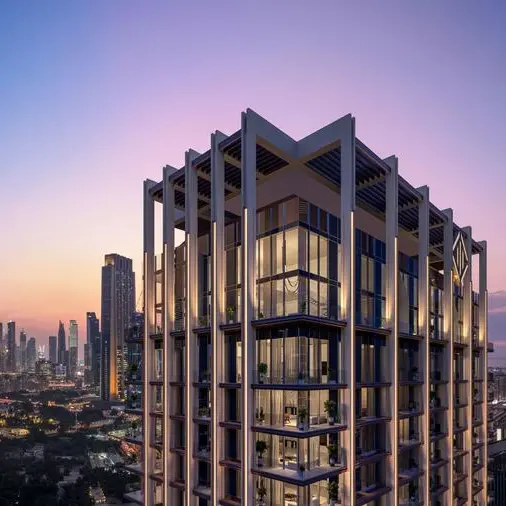PHOTO
UAE - Web3 has enabled the tokenisation of real assets and democratise the investment process. Photo for illustrative purposes only. - Shutterstock
Investors could soon buy a fraction of a property for as low as $100 – if the assets are put in the blockchain market for tokenisation that will allow millions of individuals to invest in real estate, gold and commodities.
This could be the next big game-changer in the real estate, gold and commodities trade in the UAE and the GCC, as technology platforms for tokenising real assets are here in the market.
A new fin-tech start-up, PurpleFi, has launched fractional ownership in real estate through tokenisation in Dubai that allows investors to own a fraction of a property – even as low as $100 – that democratises the real estate investment and will allow people with small amount to invest in real estate, which could give Dubai’s Dh528 billion real estate market another big boost this year.
The concept of tokenisation of real estate assets involves creating a virtual token representing ownership of a particular type of asset. Tokens can represent real estate-related ownership in several ways due to their enhanced flexibility in use. Tokenisation is a method for converting real-world assets into digital tokens created and controlled by smart contracts. Enabled by blockchain technology, PurpleFi makes investments available to individual investors using tokenisation, helping to remove barriers to entry and enabling eligible individuals to have more control over the assets they own.
According to reports, the market for tokenising real estate properties worldwide has surpassed $20 billion in size in recent months. PurpleFi’s yield aggregator uses advanced technologies to optimise investment returns, outperforming traditional investment strategies in volatile markets. The platform’s machine learning algorithms are designed to analyse market trends and execute trades in real time, resulting in impressive returns for investors.
“The tokenisation of real assets potentially expands the investible universe for asset managers. It also increases liquidity of real assets that are currently considered to be illiquid and out of reach for most retail investors. In a nutshell, tokenisation involves converting the partial or full ownership rights to an asset into a digital representation in the form of a token that is stored and administered on the blockchain,” Jeroen van Oerle, Portfolio Manager at Global Fintech Equities, writes in an article, Tokenising Real Assets.
The total value of land and property sales and mortgages in Dubai jumped 76.5 per cent to $143.86 billion (Dh528 billion) in 2022, from $81.74 billion (Dh300 billion), in 2021, according to the Dubai Land Department.
“By creating a digital investment solution that offers the kind of user experience we believe today’s modern consumer demands, PurpleFi is excited about opening up opportunities globally. Real assets and alternative investments can offer attractive benefits, and we aim to make it possible for any individual to access the benefits of investing in the world catered to their own choices that would normally be out of reach,” said Alex Goldsmith, Head of Product at PurpleFi.
PurpleFi’s platform combines the tokenisation of real-world assets with its flagship yield aggregator, powered by machine learning and high-frequency trading. It will allow micro and small investors to avail fractional ownership of real estate properties, providing investors with increased liquidity and democratizing access to asset classes.
Their tokenisation and yield aggregator platforms are designed to make investing in real-world assets more accessible and provide investors with better returns on their investments.
In 2018, a $30 million luxury condo development project in Manhattan was tokenised on the Ethereum blockchain. Investors could buy the digital tokens, thereby financing the project and receiving a right to the underlying revenue-pool of the property. In this transaction, multiple participants came together to determine the price of the development project and the market price for the tokens that provide access to it. Ownership is administered on the Ethereum blockchain and smart contracts (a kind of automation software) handle the distribution of the rent income amongst token holders.
Robert Mitchley Senior Associate, Corporate, at BSA Ahmed Bin Hazeem Associates LLP, says, “As blockchain and cryptocurrency regulations in the region begin to grow, numerous start-ups are showing interest, along with major financial institutions seeking to develop this innovation across the region. The concept of tokenisation of real estate assets involves creating a virtual token that represents ownership of a particular type of asset. Similar to the recent digital craze with non-fungible tokens (NFTs), but with a physical asset tying the token to its value instead.
“Tokens can represent real estate related ownership in several ways due to their enhanced flexibility in use. A token becomes a record that has legal meaning and hence an economic value. In addition to representing ownership of an asset, tokens can also represent an equity interest in a legal entity that controls the asset, an interest in a debt secured by the asset, a right to share in the revenue or profits generated by the asset, or any other variation as determined by the issuer of the tokens.
Copyright © 2022 Khaleej Times. All Rights Reserved. Provided by SyndiGate Media Inc. (Syndigate.info).





















